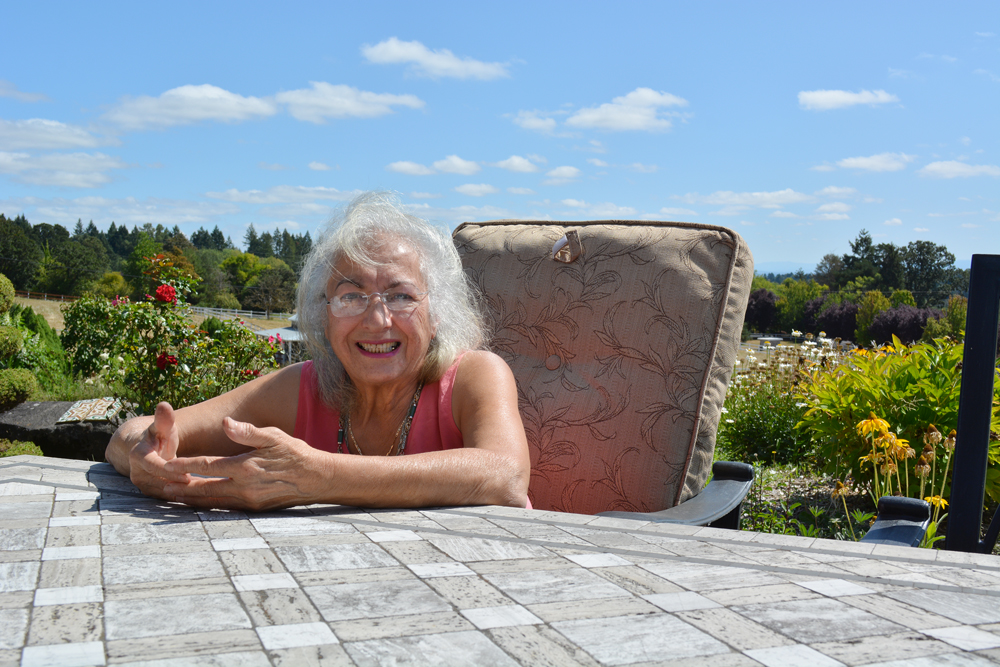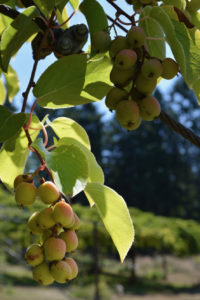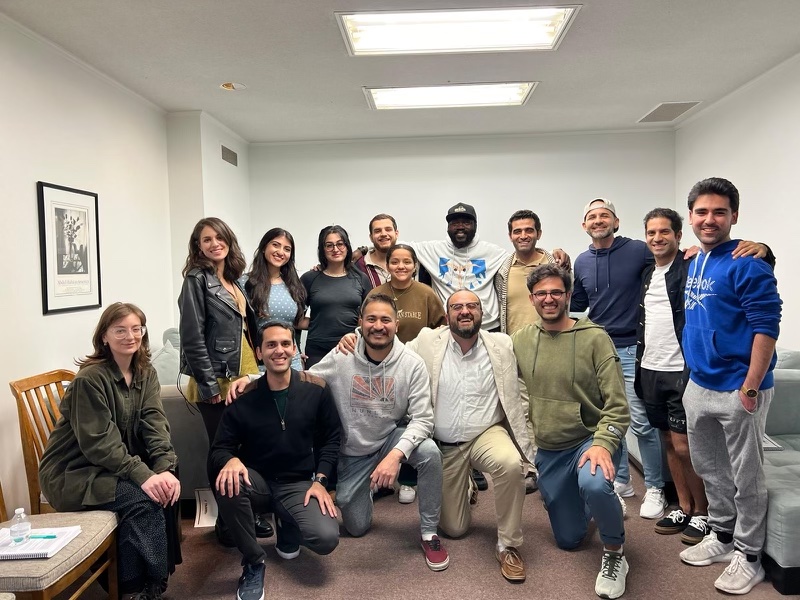
Fruit and faith blend tastefully as Oregonians flock to kiwi berry farm

Who knew the combination of kiwi berries and a Baha’i’s life story would prove so potent?
Farah Ramchandani and her husband, Tulsi, Baha’is in Wilsonville, Oregon, grow and market this grape-size relative of kiwi fruit — so unusual for the U.S. that a reporter for The Oregonian newspaper in Portland, some 20 miles north, called to set up an interview with her.
The resulting story, published Sept. 8, related how the green fruit once grown only in such places as China and New Zealand could thrive in this country.

That’s not all. A large section of the article was devoted to Ramchandani’s experience growing up in Iran, where her father was tortured by a mob for his belief in Baha’u’llah.
Oh, and in the story Ramchandani invited readers to come out to the farm Oct. 19 and 20 to pick and purchase their own kiwi berries.
Not that she expected a throng of visitors when the weather forecast predicted heavy rain the first day and a chance of light rain the second.
“I thought to myself, there will be no one coming on Saturday due to rain,” recalls Ramchandani. “But something in my heart said to put the sign up for ‘u-pick’ and set the table in case someone showed up.
“I placed a long table in the barn area with a measuring scale for u-pick, buckets for pickers and containers for those who may need them. My daughter, and her friend helped wrap the signs in shrink wrap so that they [would] stay dry during the rain,” she relates.
“I also placed 35 Baha’i prayer books and additional pamphlets about the bicentenary of the Bab, still feeling that no one would be coming.”
She needn’t have doubted. As Ramchandani returned from posting the signs, her husband, Tulsi, informed her, “There are four cars and lots of people waiting for you.” And they kept coming.
“Each person hugged me and wished to meet me because of the story of my life witnessing the persecution of my dear father,” she says. “I greeted each one and gave each a bucket to pick our most delicious fruits of the season.”

She also teased them about being tempted to eat the fruits of their picking before their baskets could be weighed.
As people returned from the fields, Ramchandani gave each a Baha’i prayer booklet. In accepting it, many said they knew she was a Baha’i from the article, and had followed up by reading about the Faith online.
“I handed out 50 Baha’i prayer booklets and pamphlets” that day, she says. “I was delighted to see so many of the readers came even though it was raining. They all glowed about their happy experience.”
It was an experience repeated the next day when more people arrived to pick fruit — and received prayer booklets, the supply of which was replenished overnight.
In total over the weekend, “Over 100 people came to the ranch and I met the most wonderful people who appreciated knowing about the Faith” and learning about and tasting what she calls “the most delicious fruit,” says Ramchandani.
The spirit carried over when she visited a library the next day to tell the director about the bicentenary celebration that would be held the following Saturday and drop off information about it for display.
Invitations also were emailed to 400 people from the immediate area who are known to the Baha’is. Several of those who came to the bicentenary remarked that they or friends had seen the article in The Oregonian and wanted to learn more about the Baha’i Faith.
Alas, Ramchandani wasn’t among those in attendance for the celebration. She had surgery on a shoulder the day before.
But like the berries, she says, it was a sweet week nonetheless.
“Everywhere I turned people were interested and were learning about our Faith and the Revelations of the Bab and Baha’u’llah,” Ramchandani marvels. “A gift of unseen empowerment was in all things.”




